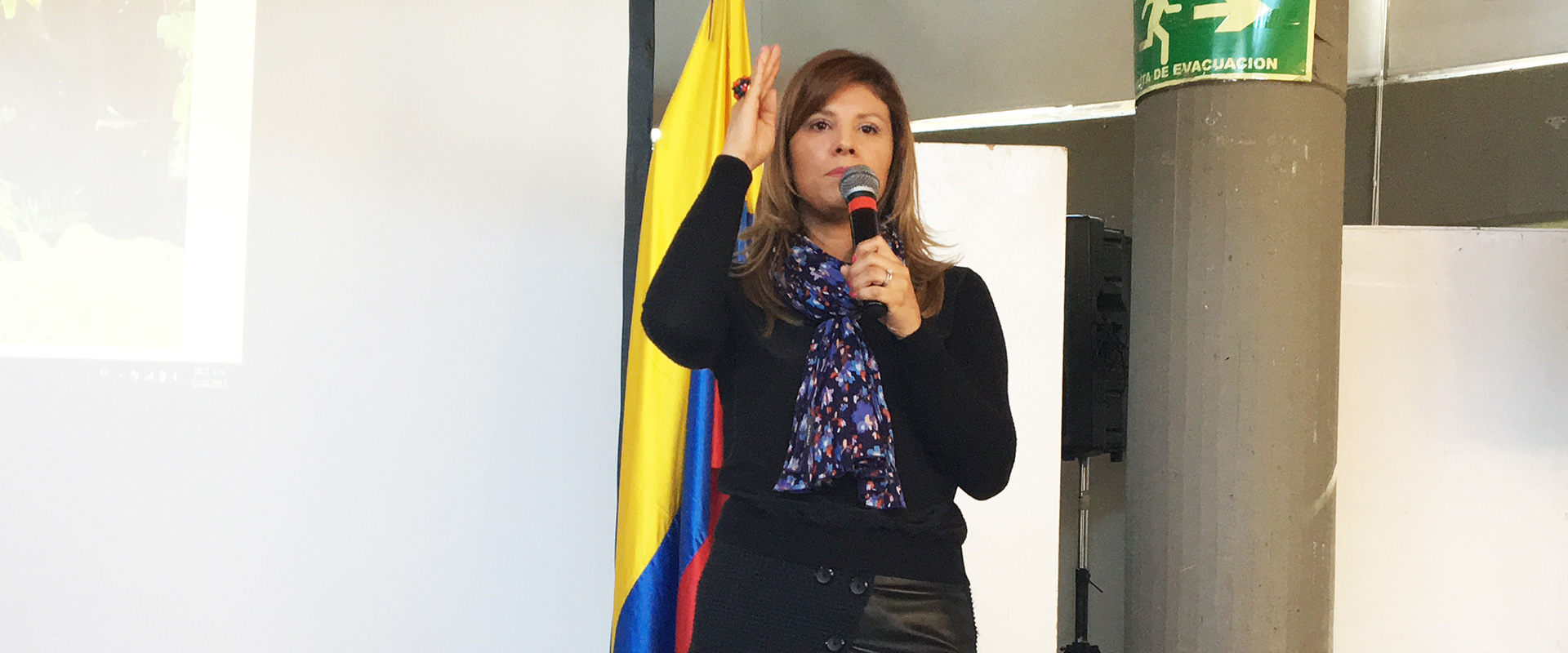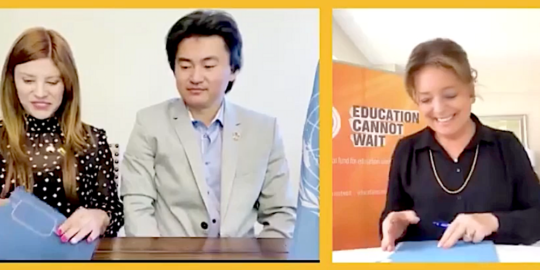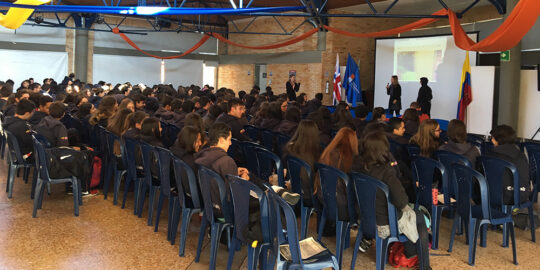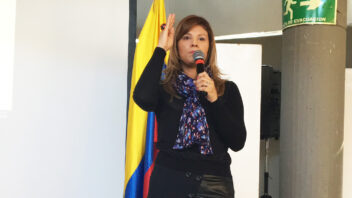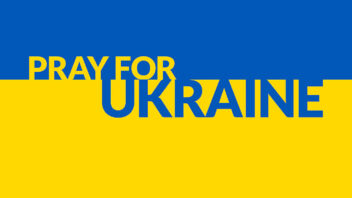Nov 1, 2021
StarAngel School in Colombia

About StarAngel Initiative
In response to education in emergency for refugee, migrant, vulnerable children and youth, Koyamada International Foundation (KIF Global) has developed a global initiative named StarAngel Initiative to help provide educational resources and quality learning for those affected by conflicts, natural disasters and displacement through its country chapters in South America and elsewhere. The Initiative mainly focuses on two areas: education in emergencies and humanitarian response in natural disasters.
Global Partnerships
In early 2020, KIF Global and UNICEF-administered fund Education Cannot Wait (ECW) signed Memorandum of Understanding (MoU) to partner globally on education in emergency, targeting the region of South America and Africa. To take action on its Public-Private Partnership (PPP), KIF Global and ECW begun collaborating in Colombia where KIF Colombia, a Colombia chapter of KIF Global, started developing working relationships and strategic plans with ECW’s other local partners in Colombia such as UNICEF Colombia and Save The Children Colombia.
StarAngel School
As part of the initiative, KIF Global and KIF Colombia have been developing its pilot program of StarAngel School in Colombia. KIF Colombia will empower underprivileged children and youth by giving them an opportunity to develop leadership and life skills and to strengthen knowledge and competencies shared from a variety of Colombian and international educators and speakers in different professions. Quality learning promotes cross-cultural learning that increases students’ understanding of their own and other cultures and enhances one’s knowledge of the norms, values, and behaviors that exist in cultures. KIF intends to offer basic conversational English education to the students and will provide school supplies, books (Spanish, English, etc), as well as other learning tools to support the educational and cultural experience. The School aims to partner with governments, private international schools, public schools, embassies, NGOs and corporations in Colombia.
An interview mentioning KIF
Education Cannot Wait interviews Colombia’s Minister of Education Maria Victoria Angulo.

